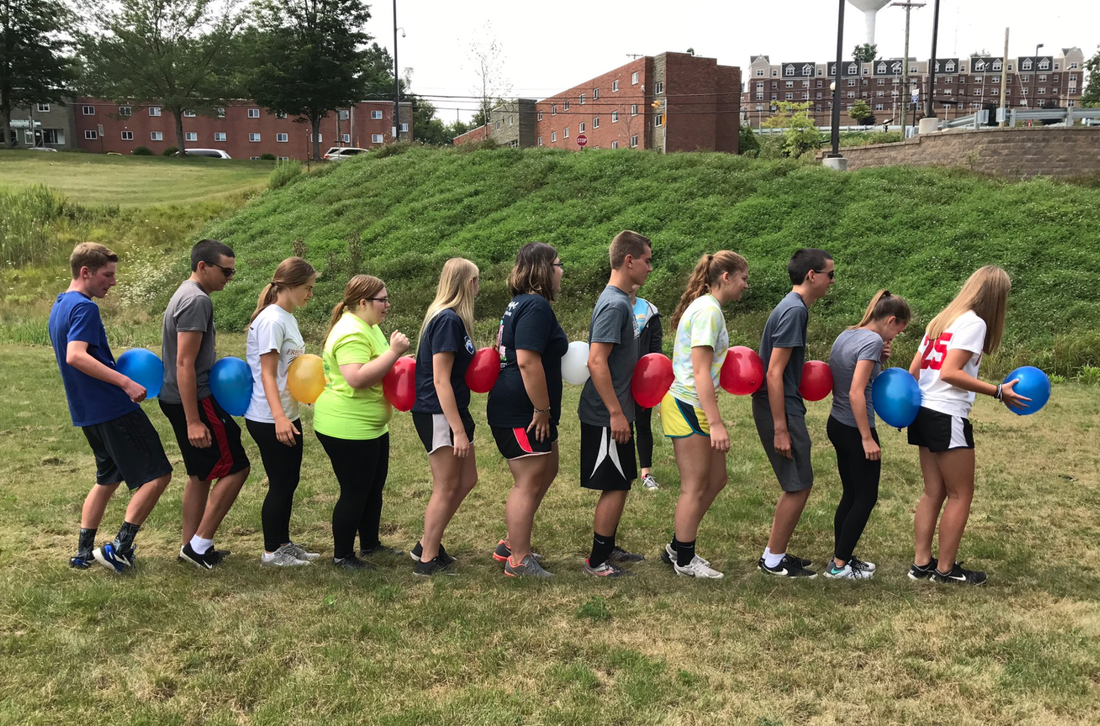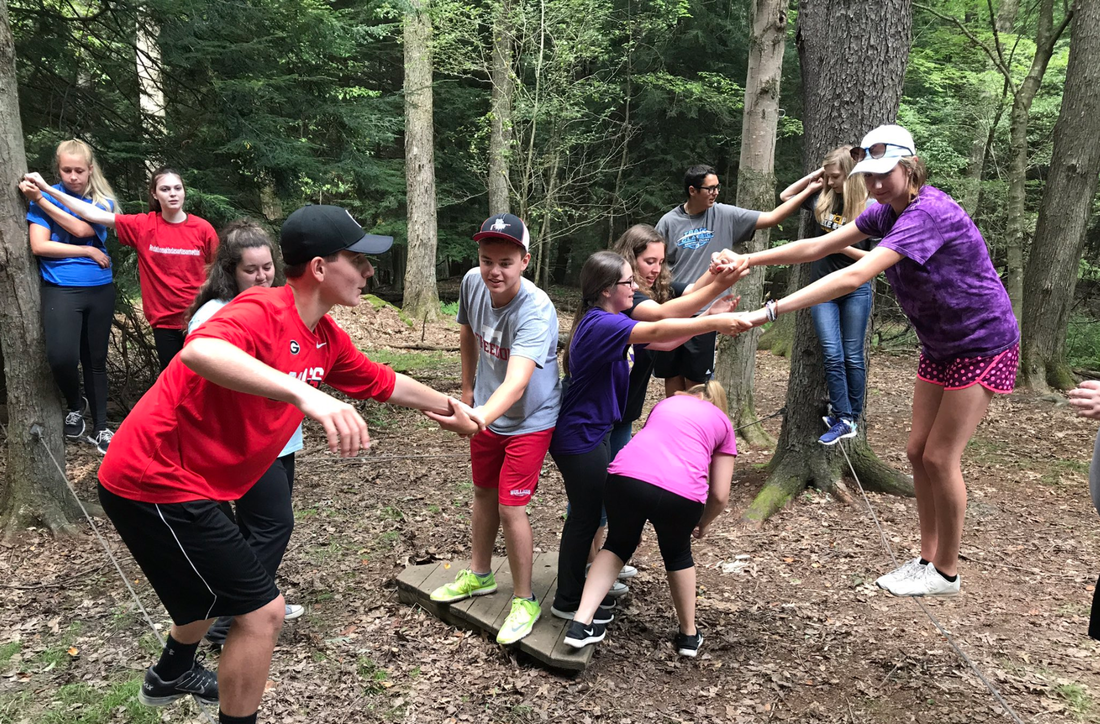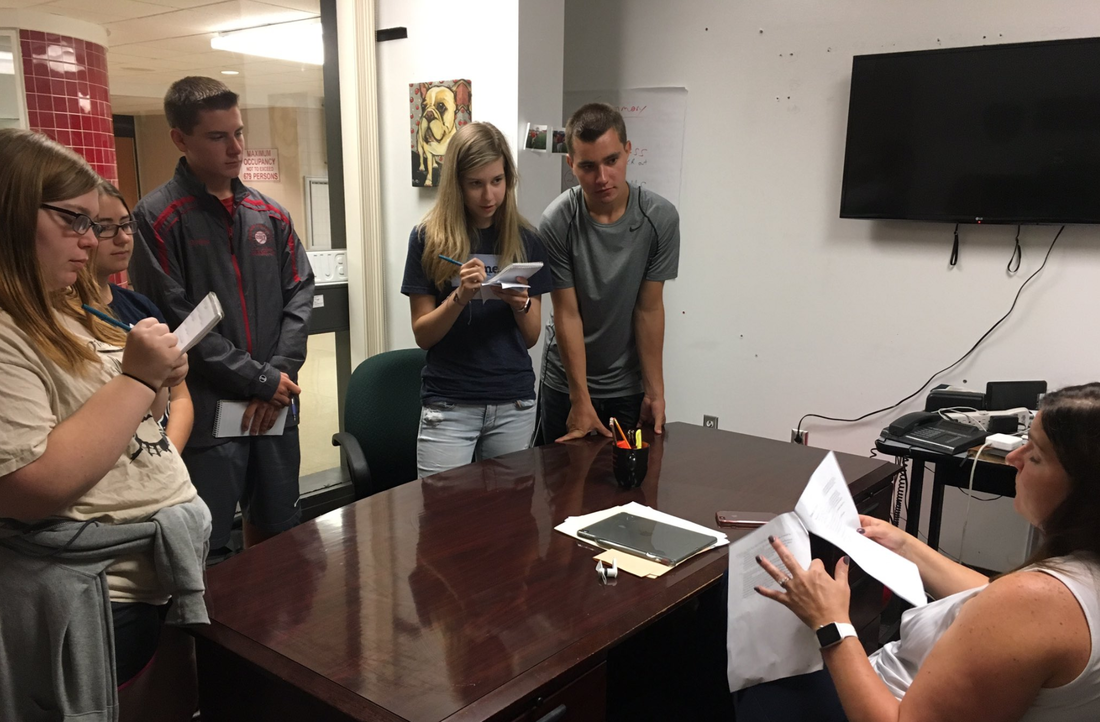Each May, I sit down with my newly-appointed editors to evaluate the year that was in hopes of gleaning enough insight to help make the following year better than the last. After several years of jam-packed Augusts and Septembers, I came to learn that cramming all of that early-year content (interviewing, reporting, photography basics, etc.) into such a short amount of time caused as much stress for my students as it did for me, and I was never really comfortable covering such important content at such a staggering pace.
Five years ago, as a new adviser, I quickly recognized the importance of team-building with a staff that works so closely together so often (our staff of 25 produces both the monthly newspaper and yearbook), and I began planning and implementing two days of staff bonding and leadership training for the following summer and have done so each summer since. The meeting with my 2017-2018 editors this past May yielded a significant consensus: We need to spend more time together covering the basics and growing as a staff before that first bell rings in late August. Two days of team-building turned into four, and our brief summer sessions evolved into our first ever J-Camp!
Between the last day of school and the first day of J-Camp, my Editors-in-Chief and Managing Editors met several times to plan for camp and the upcoming year. I felt it important to include them in this process for a number of reasons:
Empowerment. Empowering your editors is a crucial step in their leadership development. I'll be relying on these students to lead their staffs, and they need to know that I trust their judgment and value their opinions. In turn, my goal is to earn or grow their trust in me as their teacher and adviser and hope that, through that mentorship, they will follow suit in leading their respective staffs in a similar manner.
Insight. They were once new students in my program and can provide valuable insight into what it feels like to be a novice student journalist going through these processes for the first time. In fact, it was my editors' idea to expand our summer sessions from two to a four-day camp, as they felt we needed more time together, growing and learning as a staff before we hit the ground running on the first day of school, when things can be a bit overwhelming.
FACILITATING
Executing the plan depends on your access to resources. I realized early on that I wouldn't be able to pull off a four-day camp without the help of some other key players.
Involve alumni. I try to maintain contact with a network of alumni from my program, and I wanted my current staff to hear from those who have already "been there and done that." I was able to secure the help of at least four alums for each day of camp. I had the alums facilitate some of the activities so my students didn't hear too much from just me. Aside from the basics, I also asked each of them to share with the current students:
A) Where they are now
B) Which position(s) they held on our staff while they were in the program
C) Why they volunteered their time to come back to school and help out with this program
D) A piece of advice for this year's staff
Their answers to "C" above validated my decision to seek their help in the first place, as they all shared stories of how the program meant so much to them, how it helped them in high school and beyond, and why it's so important in today's society to think like a journalist.
Involve administrators/colleagues. I'm fortunate to work in a district that supports student journalism from the top down. Not to take that for granted, any time I have an opportunity to involve administrators, board members, colleagues, etc. with something we do as a staff, I do. Building those relationships and gaining their trust pays dividends if/when your students need to cover the tough stories. For our last day of camp, four of our administrators agreed to take on the roles of four unique characters as interview subjects in a reporting simulation. Not only did the students enjoy seeing their administrators in a different capacity, but the administrators all commented afterward about how much they enjoyed the activity.
ADVICE
You know your staff better than anyone else, and what works for me may not work for you and vice versa. Make your camp your own. That being said, the following advice should be universal:
Some activities take more or less time than you might expect. Have more planned than you can you need, and adapt as needed.
You're competing with summer vacations, part-time jobs, family obligations, band camp, and the start of fall sports. Have a plan for how you'll deal with absences.
Reflect with your facilitators at the end of each day. They may have noticed something you missed and can provide you with feedback that helps you plan for the next day(s) of camp.
Check out our staff's social media shares from the workshop to see what it was like:




 RSS Feed
RSS Feed
